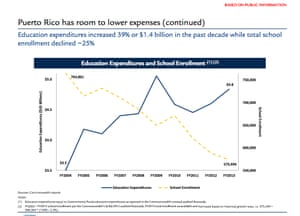SPECIAL NITE CAP

CORPORATE ED REFORM

Shame on the Ohio House for pushing off action on critical charter school reform bill:
Shame on the Ohio House for pushing off till September action on critical charter school reform bill: editorial | cleveland.com: Shame on the Ohio House for pushing off till September action on critical charter school reform bill: editorialThe Ohio House shamelessly blew it last month when it failed to act on Substitute House Bill 2, a landmark charter reform bill aimed at ensuring that Ohio's cha
As Mayor Johnson's Scandals Grow, Was Obama Admin Wrong to Fire Inspector General? | The Weekly Standard
As Mayor Johnson's Scandals Grow, Was Obama Admin Wrong to Fire Inspector General? | The Weekly Standard: As Mayor Johnson's Scandals Grow, Was Obama Admin Wrong to Fire Inspector General?Despite little national coverage, scandals surrounding former NBA star and Sacramento mayor Kevin Johnson have been intensifying over past few months. Monday's report at Deadspin is a good place to start -- thing
Why rich kids do better than smarter, less advantaged kids: 'opportunity hoarding' | OregonLive.com
Why rich kids do better than smarter, less advantaged kids: 'opportunity hoarding' | OregonLive.com: Why rich kids do better than smarter, less advantaged kids: 'opportunity hoarding'Would you rather be born rich and average or poor and smart?We like to think that in a free society a lot of the smart, disadvantaged kids will find a way to become successful, but a new report from Great Britain sugg
TeachingCenter - the latest developments in the exciting world of pro teaching | Comedy Central
TeachingCenter - Key & Peele Video Clip | Comedy Central: TeachingCenter - the latest developments in the exciting world of pro teaching | Comedy CentralKey and PeeleGet More: Comedy Central,Funny Videos,Funny TV ShowsBoyd Maxwell and Perry Schmidt report on the latest developments in the exciting world of pro teaching.
The Child Left Behind - The Crucial VoiceThe Crucial Voice
The Child Left Behind - The Crucial VoiceThe Crucial Voice: The Child Left BehindThe child left behind isn’t always obvious.The obviously educationally deprived children have been well documented—repeatedly. They are represented by the demographic categories (disaggregated data) of No Child Left Behind in an attempt to bring attention and resources to those groups to correct their education defici
Hedge funds tell Puerto Rico: lay off teachers and close schools to pay us back | World news | The Guardian
Hedge funds tell Puerto Rico: lay off teachers and close schools to pay us back | World news | The Guardian: Hedge funds tell Puerto Rico: lay off teachers and close schools to pay us backBillionaire hedge fund managers have called on Puerto Rico to lay off teachers and close schools so that the island can pay them back the billions it owes.The hedge funds called for Puerto Rico to avoid financial
Mindfulness Training—Help or Cover-up in Education-Reform Affected Schools?
Mindfulness Training—Help or Cover-up in Education-Reform Affected Schools?: Mindfulness Training—Help or Cover-up in Education-Reform Affected Schools?There’s mindfulness for teachers and mindfulness for students. There’s mindfulness in the UK and mindfulness in the USA. You can find groups that will train teachers and students about mindfulness around the world. But is mindfulness being used to
ESEA Conference: Accountability vs. Portability – The Network For Public Education
ESEA Conference: Accountability vs. Portability – The Network For Public Education: ESEA Conference: Accountability vs. PortabilityAs Senate and House leaders begin the process of merging their respective bills into a single piece of coherent legislation that can be signed into law by President Obama, there are some crucial issues for public education supporters to consider. Not only are there key
This Week In Education: Thompson: Chris Barbic's Resignation & the Failure of School "Reform"
This Week In Education: Thompson: Chris Barbic's Resignation & the Failure of School "Reform": Thompson: Chris Barbic's Resignation & the Failure of School "Reform"In 2009 and 2010, the contemporary school reform movement became the dog that caught the bus it was chasing. The Obama administration funded the entire corporate reform agenda. The wish list of market-driven
Marie Corfield: My Review of the documentary 'Heal Our Schools'
Marie Corfield: My Review of the documentary 'Heal Our Schools': My Review of the documentary 'Heal Our Schools'Pick up a newspaper or turn on the television and reporters and other talking heads describe the grand experiment that is corporate education 'reform' with buzz words like 'accountability', 'data', 'innovation', 'testing', 'rigor', 'choice' and 'transformation'. A few words you won't hea
Continued failure to fund K-12 education, McCleary plaintiffs argue | Crosscut
Continued failure to fund K-12 education, McCleary plaintiffs argue | Crosscut: Continued failure to fund K-12 education, McCleary plaintiffs argueThe McCleary plaintiffs argue that the Washington legislature is still dragging its feet on its constitutional duty to adequately fund basic education, and that Washington Supreme Court needs to take action this year against that body.That sums up Monda
Linda Darling-Hammond, State credentialing leader: system ‘challenged’ not broke :: SI&A Cabinet Report
State credentialing leader: system ‘challenged’ not broke :: SI&A Cabinet Report :: The Essential Resource for Superintendents and the Cabinet: State credentialing leader: system ‘challenged’ not broke(Calif.) Just as Mark Twain famously corrected reports of his death, the head of California’s teaching certification and professional standards agency rejects the notion that the state’s once vau
Eleven civil rights groups urge Obama to drop test-based K-12 ‘accountability’ system - The Washington Post
Eleven civil rights groups urge Obama to drop test-based K-12 ‘accountability’ system - The Washington Post: Eleven civil rights groups urge Obama to drop test-based K-12 ‘accountability’ systemEleven national civil rights groups sent a letter Tuesday to President Obama, Education Secretary Arne Duncan and congressional leaders saying that the current standardized test-based “accountability system
Teach for America Seeks Help Promoting Itself on Capitol Hill | deutsch29
Teach for America Seeks Help Promoting Itself on Capitol Hill | deutsch29: Teach for America Seeks Help Promoting Itself on Capitol HillTeach for America (TFA) is a nonprofit organization founded in 1991 by Princeton graduate and noneducator, Wendy Kopp. TFA was granted nonprofit status in June 1993. According to its 2013 990, TFA’s end-of-year total assets were $494 million, with $73.5 million of
Even If NCLB Is Reauthorized, States Push On with Punitive School Policies and Privatization | janresseger
Even If NCLB Is Reauthorized, States Push On with Punitive School Policies and Privatization | janresseger: Even If NCLB Is Reauthorized, States Push On with Punitive School Policies and PrivatizationIn an important piece last week for the Education Opportunity Network, Jeff Bryant looks at the way the dynamics are shifting in punitive education “reform.” Even if Congress reauthorizes the Element
Is There A Pension Crisis? | Shanker Institute
Is There A Pension Crisis? | Shanker Institute: Is There A Pension Crisis?Our guest author today is David Cay Johnston, a distinguished visiting lecturer at the Syracuse University College of Law and a former Pulitzer prize-winning financial reporter at The New York Times. This article is adapted from his remarks to an ASI-sponsored conversation on the topic in March, which also included remarks f
More on the Importance of the Teacher Supply - Paul Bruno
More on the Importance of the Teacher Supply - Paul Bruno: More on the Importance of the Teacher SupplyLast week the Brookings Institution’s Chalkboard blog published a piece of mine on the importance of the teacher supply to education reform. It’s really an elaboration of a point I’ve made at various times in the past, with California as an illustrative example:[M]any teacher evaluation reform ef
‘Parent trigger’ campaigns can continue despite lack of new test scores | EdSource
‘Parent trigger’ campaigns can continue despite lack of new test scores | EdSource: ‘Parent trigger’ campaigns can continue despite lack of new test scoresWhile California’s testing and accountability system is in flux, parents are allowed to attempt to force major changes at schools considered failing based on tests that are at least two years old and that measure material that’s no longer being
Beyond the headlines: NCLB reform's lesser-known provisions | MinnPost
Beyond the headlines: NCLB reform's lesser-known provisions | MinnPost: MinnPost's education reporting is made possible by a grant from the Bush Foundation.Beyond the headlines: NCLB reform's lesser-known provisionsWhen Congress passed the Elementary and Secondary Education Act in April of 1965, it opened a major front in Lyndon Johnson’s War on Poverty.Earlier this month the U.S. House of Represe
Jersey Jazzman: State Standards, Mapping the NAEP, & Student Performance: Who's the "Liar"? Part II
Jersey Jazzman: State Standards, Mapping the NAEP, & Student Performance: Who's the "Liar"? Part II: State Standards, Mapping the NAEP, & Student Performance: Who's the "Liar"? Last time, I challenged the reformy notion that higher standards a priori lead to better test-based performance. The basis for my challenge is a new report from the National Center for Education
To get support for education bill, senators conjure lost art: Compromise - The Washington Post
To get support for education bill, senators conjure lost art: Compromise - The Washington Post: To get support for education bill, senators conjure lost art: CompromiseSen. Lamar Alexander walked into Sen. Patty Murray’s office and closed the door.Alexander, a Republican from Tennessee, had just taken control of the education committee in the new GOP-led Senate and was determined to rewrite No Chi
Teacher-Turned-Congressman: Rep. Mark Takano's Take on ESEA Rewrite - Politics K-12 - Education Week
Teacher-Turned-Congressman: Rep. Mark Takano's Take on ESEA Rewrite - Politics K-12 - Education Week: Teacher-Turned-Congressman: Rep. Mark Takano's Take on ESEA RewriteMeet Rep. Mark Takano, D-Calif., a two-term congressman who, prior to his election in 2012, spent more than two decades teaching middle and high school.Takano represents some of California's valley communities in and around Riversi
Why Nate Silver’s FiveThirtyEight blog is wrong about teacher evaluation - The Washington Post
Why Nate Silver’s FiveThirtyEight blog is wrong about teacher evaluation - The Washington Post: Why Nate Silver’s FiveThirtyEight blog is wrong about teacher evaluationFiveThirtyEight is a blog created by Nate Silver, a famous statistician who developed a system for forecasting player performance in Major League Baseball and accurately predicted the winner of 49 out of 50 states in the 2008 presid
With A Brooklyn Accent: Summer School Nightmare- Turning Up the Head on "Student Achievement"
With A Brooklyn Accent: Summer School Nightmare- Turning Up the Head on "Student Achievement": Summer School Nightmare- Turning Up the Head on "Student Achievement"NOTE: This was written by a teacher in a high poverty district somewhere in the Midwest. Child and Teacher Abuse in full effect A time to maintain achievement, right? To prevent the "summer slide" and keep
YESTERDAY
Sacramento News & Review - ‘Segregation' will happen if the city of Sacramento ditches inclusionary housing - Bites - Opinions - July 23, 2015
Sacramento News & Review - ‘Segregation' will happen if the city of Sacramento ditches inclusionary housing - Bites - Opinions - July 23, 2015: ‘Segregation' will happen if the city of Sacramento ditches inclusionary housingPresident Barack Obama’s Department of Housing and Urban Development this month announced a new initiative to fight housing segregation in U.S. cities. The policy requires
Special Nite Cap: Catch Up on Today's Post 7/27/15
SPECIAL NITE CAP CORPORATE ED REFORMTest & Punish & Civil Rights | The ProgressiveTest & Punish & Civil Rights | The Progressive: Test & Punish & Civil RightsThe Murphy Amendment (Premise: the worst parts of NCLB are actually the best parts; let's give them steroids) was one more manifestation of the Civil Rights Argument for Test and Punish. Amendment proposer Chris Murphy


















